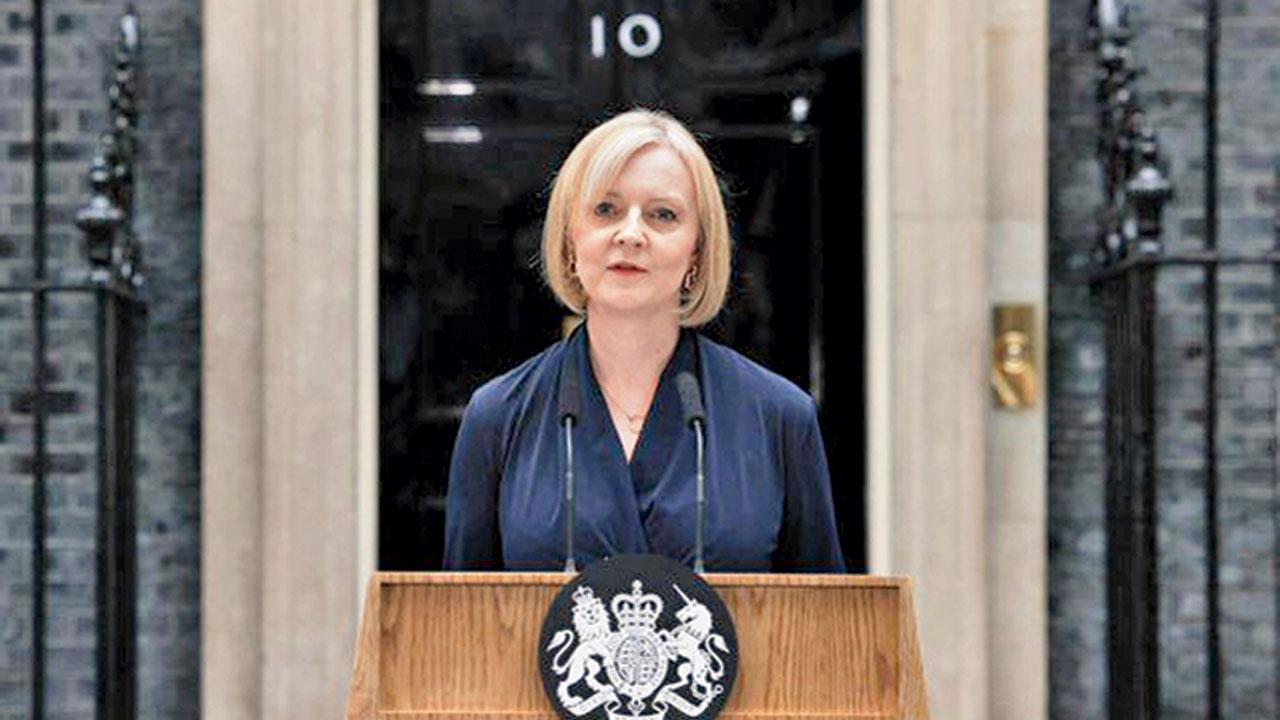As Prime Minister Liz Truss takes on an economy in disarray, we wonder about the pressure points that a leader in any workplace scenario needs to address and how, when assuming the role in a new team

Experts stress on the importance of developing an accessible personality and smart communication skills
After being sworn in as the UK’s new Prime Minister in the face of high inflation, high energy costs, the fall of the British pound, and a potential recession in the coming months, Liz Truss wasted no time in addressing issues, while announcing, “I will deliver a bold plan to cut taxes and grow our economy.” How does dealing with an economy that is undergoing tumultuous changes, and the news of Queen Elizabeth II’s demise further affect a country and its new leader as both try to overcome scaling challenges and grief? The question of tackling monumental tasks isn’t new for leaders across different fields. How does new leadership gain team trust and work together towards goals, and a stable and promising future? Three coaches detail the necessary qualities and approaches.
ADVERTISEMENT
Step by step guide
Aparna Gautam, a career growth specialist, acknowledges how overwhelming it can be for a new leader to step in to bring a team to stability. Noting the importance of teamwork for smooth and directed workflow, Gautam highlights the need to first establish a connection with one’s team and build rapport. “Evaluate where the team stands and their first-hand feelings of the situation. Identify the strengths and gaps. Do this through clear and transparent communication during team meetings as well as one-on-ones,” she suggests.

UK Prime Minister Liz Truss. Pic Courtesy/Twitter
The next step that Gautam outlines is setting priorities for work according to realistic timelines, instead of trying to fight all battles in one shot or being too eager to hit milestones and prove oneself. The quality of a leader to make high-impact decisions during crises on short timelines is crucial; it highlights their foresight. She notes that while such qualities might be difficult to tap into if they are not encouraged as kids and young adults, they can still be developed through practical experience. Stepping into a new role is a big opportunity for leaders to redefine work approaches and culture. She explains that employees thrive in a balanced workspace where their opinions are heard, the work is paced and they can take pauses. Don’t create a culture that employees must fight against; these are unnecessary battles that steal energy and focus. Instead, be brave and address the challenges that crop up.

Aparna Gautam and Tanisha Guin
As the conversation turns in favour of prioritising one’s physical and mental well-being over work approaches set falsely in the name of professionalism, it’s important for leaders to also manage their own well-being. Here, self-regulation in the office space will help leaders to bounce back, work practically and sustain themselves. After all, you can’t pour from an empty cup.
Also Read: Get that pun-chline right
Sustenance is the key
As leaders look to establish the longevity of their role, we must note that a steady pace is crucial for sustenance. For this, Tanisha Guin, deputy manager, ICICI Foundation, a social impact consultant and a career coach, suggests tackling easy successes first before moving to bigger tasks. This will build trust with subordinates as well as momentum. Addressing pressure points that a leader may have to face, Guin begins listing tools she has used in similar roles: There will be soft and evident conflicts, so set precedence and protocol for how you resolve internal issues with the team. Networking with peers helps to build support, reliance and a sounding board. Absorb all new information but filter it through your own knowledge, observation, and instinct. Make your curiosity known, especially with a new team and a new setting. Be approachable, and simplify complex solutions.
Truss’ every action and its result will be under an unforgiving spotlight, more so because she’s a woman. As the UK pound falls to its lowest since 1985, Truss is already subjected to comparisons against her predecessor, Margaret Thatcher, who served as the prime minister during that period. In workspace scenarios, Gautam informs that a leader in such times must be watchful of their communication so as to not badmouth a previous leader to avoid fuelling the comparison and gossip culture in the office. Guin adds, “Focus on the work and let it speak for itself. If people want to voice their opinions, have an open forum to promote transparency which will mellow the comparison.”
Neha Mishra, a leadership trainer and founder, Neha Talks, continues that comparison might be fuelled by a team’s resistance to change which they can overcome by establishing trust through an in-depth SWOT — Strengths, Weaknesses, Opportunities, and Threats — assessment of the team, and defining a roadmap to achieve required motives and results.
Toolkit for leaders
1. A team in crisis looks up to its leader for direction. So focus on aligning the team’s vision with SMART — Specific, Measurable, Achievable, Relevant and Time-bound-goal-setting, says Neha Mishra (inset).

2. In crises, use a service as well as situational leadership. The former style serves the team, leads by example, and supports an employee which is effective for new and disoriented teams. The latter assesses and offers what the situation demands.
3. Prioritise the chaos. A leader’s quality to de-clutter during roadblocks can bring a fresh perspective and lightness to the gravity of business challenges.
4. Develop these personal strengths: authenticity, reliability, excellent communication skills, and the ability to take ownership of the team.
On-Ground report

Bala Sarda, founder and CEO, Vahdam India, banks on his experience of watching people undertake leadership roles in his organisation over the last seven years, sharing observations on what works: “When replacing another leader, develop a rapport with your new team, identify what they and the system require at every point, be accessible, and communicate in a manner so that the team also feels heard.”
 Subscribe today by clicking the link and stay updated with the latest news!" Click here!
Subscribe today by clicking the link and stay updated with the latest news!" Click here!







